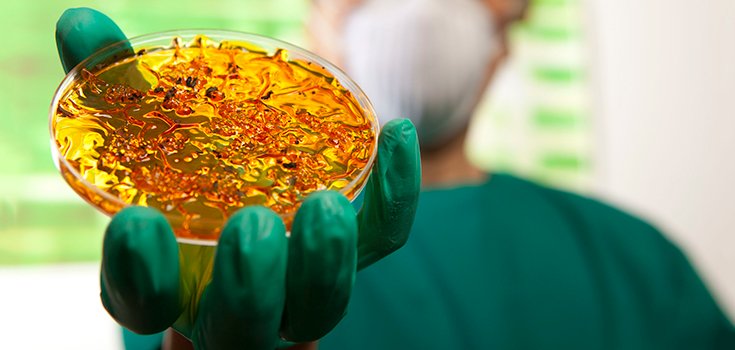84-Page Report Outlines 9 Ways to Beat Antibiotic Resistance

There’s a vicious presidential campaign going on, while Americans play tug-o-war over transgender bathrooms and other social issues. So maybe you haven’t heard that our antibiotics are failing, and we need to do something about it if we’re to beat future disease.

Oh, if only I were exaggerating, but I’m not. By 2050, superbugs could kill 1 person every 3 seconds – that’s 10 million people a year. Right now, superbugs take down”just” an estimated 700,000 people annually.
There’s still time, but we have to act fast.
Ghada Zoubiane, program manager for infection at the Medical Research Council in the UK, told CNN:
“It has to be a big concern. It’s a silent problem that hasn’t hit us in the face yet.”
How do we fix this?
A long-awaited report came out last week detailing how we must – we must – fight antimicrobial resistance. It’s not as simple as just toughing it out when you’re sick anymore, though that is undoubtedly an important part of the equation.
The 9 Key Interventions
The 84-page document lays out 9 interventions:
- 1. A global public awareness campaign
- 2. Improve sanitation and prevent the spread of infection
- 3. Reduce unnecessary use of antimicrobials in agriculture and their dissemination into the environment
- 4. Improve global surveillance of drug resistance and antimicrobial consumption in humans and animals
- 5. Promote new, rapid diagnostics to reduce unnecessary use of antimicrobials
- 6. Promote development and use of vaccines and alternatives
- 7. Improve the number, pay and recognition of people working in infectious disease
- 8. A global innovation fund for early stage and non-commercial R&D (research and development)
- 9. Better incentives to promote investment for new drugs and improving existing ones
We ALL Need to Work Together to Tackle the Problem
Obviously, if our current antibiotics are failing, we need to come up with new ones. That’s where “better incentives” come in. Pharmaceutical companies aren’t terribly interested in developing new antibiotics because they’re not lucrative. They don’t want to make drugs that will sit in a pharmacy until a major crisis comes along. Depression, obesity, hypertension, those are the money makers.
Economist Jim O’Neill, who headed up the Review on Antimicrobial Resistance, wants to tackle the problem by forcing drug companies to “pay or play.” Manufacturers must either research and develop new antibiotics, or fund other companies that will. He said:
“We think there is a credible case for the pharmaceutical industry itself to pay, given how important antibiotics are for 7 billion people around the world.” [1]
But Brenda Wren, professor of microbial pathology at the London School of Hygiene and Tropical Medicine, says it doesn’t make sense to focus so much attention on developing new antibiotics, because bacteria can eventually become resistant to those, too.
Human consumption of antimicrobials is a piece of a larger puzzle, but still an important one. In the UK, more than 10 million antibiotics are unnecessarily prescribed each year for ailments such as colds, which are caused by a virus and not bacteria.

O’Neill proposes banning doctors from prescribing antibiotics until they have conducted rapid tests to prove the infection is bacterial. There must first be incentives to develop such tests, since sending medicine back to the Dark Ages is less important to companies than dollars. O’Neill said:
“We think there is a credible case for the pharmaceutical industry itself to pay, given how important antibiotics are for 7 billion people around the world.”
Some experts say too much emphasis is being placed on this aspect of antimicrobial resistance, however. Wren told CNN:
“Most antibiotics are used in hospitals. There’s too much weight placed on GPs. It should be reduced, but the truth is that antibiotics [use is] widespread in the environment.”
Wren also points out that, in some countries, the use of antibiotics is not controlled, and the drugs can be purchased over the counter.
The report also urges that some vital antibiotics stop being used in livestock entirely. Many medically important antibiotics are fed to animals to treat infections and promote growth. One such antibiotic is colistin, a “last resort” antibiotic used when all others fail. The medication is cheap, which resulted in increased use in animal feed.
Read: US Pork Producers Develop 3-Point Plan To Beat Antibiotic Resistance

Since O’Neill was first tasked with coming up with writing the review in 2014, some bacteria have developed a resistance to colistin. [2]
O’Neill advocates certifying meat as raised with “responsible use” of antibiotics, which could allow consumers to cut down their use. Some companies, including Tyson, already have already cut antibiotic use in their animals, but much of the agricultural sector is likely to protest such a plan.
Andrew Read, an evolutionary biologist based at Pennsylvania State University, says the biggest challenge will be learning to use antibiotics when needed in a way that doesn’t select for resistant strains. He told Science:
“If evolutionary considerations became an essential component of medical best practice, we’d get immense gains—even bigger than those that will come from rapid diagnostics and less agricultural use.”
Ultimately, no matter what is proposed, someone – some group or organization – will have a problem with it. But if everyone doesn’t get on the same page, common infections will start killing people at a rate faster than cancer.
Sources:
[1] The Guardian
[2] New Statesman
